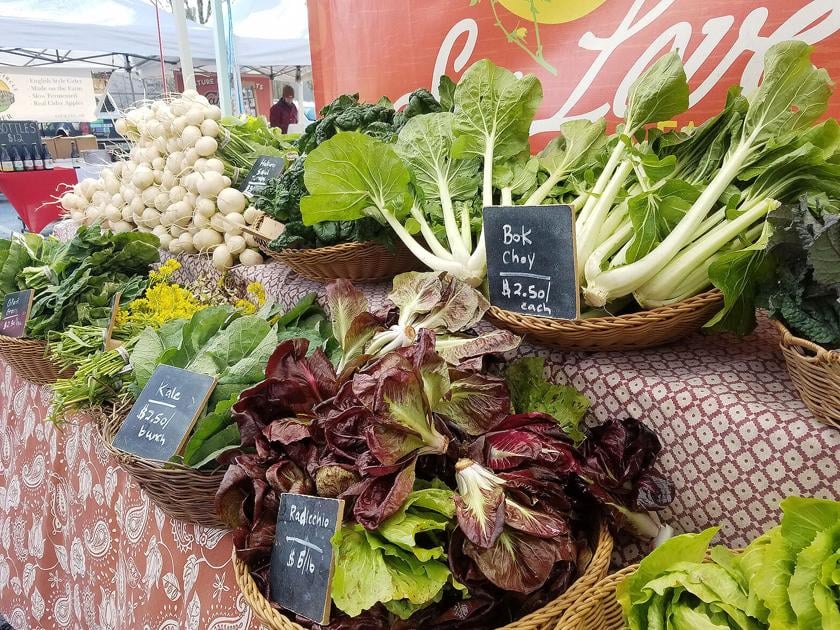
Demand for winter vegetables is growing as more consumers seek to buy local food during the pandemic.
Consumer interest in winter vegetables — such as Brussels sprouts, cabbage, cauliflower, garlic and winter squash — has typically been far outpaced by demand for imported warm-season vegetables such as tomatoes. But this year, experts say, the winter vegetable market is gaining traction.
“Winter vegetables are the fastest growing greens segment. The market for these crops, especially radicchio, chicory, spinach and purple sprouting broccoli, is expanding faster than any of us can keep up with," John Navazio, a national plant breeder for Johnny’s Selected Seeds, said in a statement.
Sheri Sirkin, executive director of Friends of Family Farmers, said the pandemic has prompted record produce sales for many of Oregon's small-scale farmers, a trend she anticipates will continue through the cold seasons.
Kelly Crane, executive director of the Oregon Farmers Markets Association, told the Capital Press shoppers appear eager for farmers markets to continue running during fall and winter.
Jessica Land, market manager for the Oregon City Farmers Market, told the Capital Press there is "definitely" an increase in winter vegetable interest among market shoppers. Months into COVID-19, Land said shoppers want to support local farms and avoid longer supply chains.
The challenge, Land said, is that in normal years, shoppers are more likely to try unfamiliar winter vegetables, like radicchios, at the suggestion of farmers while they walk the market. With social distancing measures in place this and many shoppers opting to order online this year, Land said it may be harder to encourage shoppers to try new things.
But the good news, she said, is that farmers are creating descriptions for their produce on the Oregon City Farmers Market's app. Descriptions include statements like: "This vegetable tastes similar to" or "This pairs well with."
Holly Hutchason, executive director of the Portland Area Community Supported Agriculture Coalition, or PACSAC, said small farms that run CSA programs are also showing more interest in learning how to winter farm. Last year, she said, her coalition of 85 farms had seven farms offering winter shares; this year, she said, that has leapt to 23.
Researchers at Oregon State University have also picked up on the trend. With funding from the Oregon Department of Agriculture's Specialty Crop Block Grant Program, OSU researchers, in partnership with the Culinary Breeding Network, are launching a project called "Eat Winter Vegetables" this fall.
Heidi Noordjik, a small farms coordinator at OSU's Extension Service, told the Capital Press the goal of the project is to increase production and consumption of winter vegetables in Oregon.
The project will host field days and events, including the 2020-21 Variety Showcase and Winter Vegetable Sagra, a virtual series of events featuring TED-style talks, interactive Q&A sessions, cooking demos and virtual field tours.
Friends of Family Farmers and similar groups will also be hosting "Fill Your Pantry" events this fall to encourage consumers to stock up on shelf-stable winter farm foods.
October 01, 2020 at 07:00AM
https://ift.tt/36mjMiU
Demand for winter vegetables takes root during pandemic - Capital Press
https://ift.tt/2CyIOeE
Vegetable
No comments:
Post a Comment